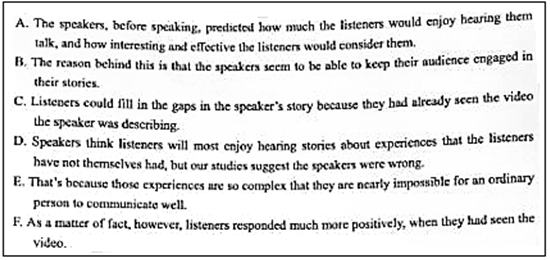12.Elephants have their own way to tell the shape of an object and __________ it is rough or smooth.( )
| A. | that | B. | how | C. | whether | D. | what |
9.---I'm afraid I won't have the chance to go to the concert.
---Don't worry.You have the ticket for it,I promise you.( )
---Don't worry.You have the ticket for it,I promise you.( )
| A. | shall | B. | would | C. | may | D. | should |
6.We have been trying to train the young people who were hired last month,but they their best to learn.( )
0 143056 143064 143070 143074 143080 143082 143086 143092 143094 143100 143106 143110 143112 143116 143122 143124 143130 143134 143136 143140 143142 143146 143148 143150 143151 143152 143154 143155 143156 143158 143160 143164 143166 143170 143172 143176 143182 143184 143190 143194 143196 143200 143206 143212 143214 143220 143224 143226 143232 143236 143242 143250 151629
| A. | were not doing | B. | didn't do | C. | are not doing | D. | hadn't done |
